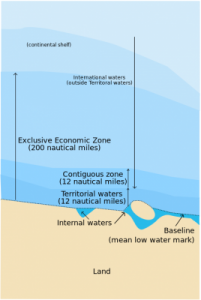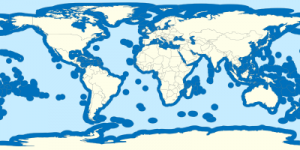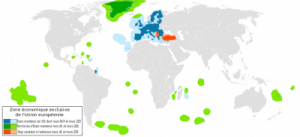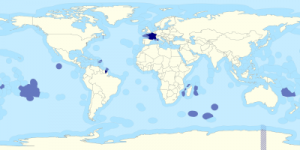Giorgos Kallis
MARCH 2020
GREEN EUROPEAN JOURNAL
Whereas mainstream economics is about expansion and productivity, environmentalism has often taken it upon itself to remind people of the limits and the consequences of exceeding them. Too many emissions will see climate catastrophe. Too much resource extraction will see society break down. But is this way of thinking counterproductive? Does appealing to external limits deny society the chance to set its own path? We spoke to the political ecology thinker Giorgos Kallis about his new book, Limits: Why Malthus Was Wrong and Why Environmentalists Should Care, to discuss problems with the standard discourse on limits and where to look for alternatives.
Green European Journal: Nowadays some of the talk about limits – to growth, to demography, of the planet – is based on Malthus and the Neo-Malthusians of the 1960 and 1970s. In Limits you explain that Malthus’s original message is quite different from the usual story about limits and overpopulation. (1) Can you explain?
Giorgos Kallis: We have come to think of Malthus as someone who worried about overpopulation and limits to growth. But if you read his An Essay on the Principle of Population carefully, Malthus makes clear that he does not believe there are limits to resources, not even to food production. (2) He is not worried about overpopulation, a term he never uses – he is worried about producing enough food to keep the population growing.
The secret to understanding Malthus is to remember that he was both a priest and an economist, the first professor of political economy. Malthus was a student of the theologian William Paley at Cambridge. For those priests, the greatness of a nation was measured by its numbers. Population growth was good, not bad. Malthus does not predict overpopulation and famines in the future. In his essay, he argues against redistribution, positing that if we take care of the poor they will become lazy and not work hard enough to produce food and support themselves. Keep them hungry so that they are industrious, and so the population keeps growing.
Malthus’s influence on subsequent economists and economics is much stronger than we often realise. He turned the Christian mantra to go forth and multiply into an economic principle. Population growth in his model was the greatest possible good for humanity, its God-given mission. Malthus translated this expansionary logic into a foundational assumption of economics. In economics, the religious dimension disappears but the assumption that our duty as humans is to expand, multiply, and colonise the earth’s surface (and beyond) remains.
Does the emphasis that economics puts on scarcity and growth come from Malthus?
Not only, but yes, Malthus played an important role. He was one of the first to hide the moral assumption of a duty to expand without limits behind seemingly mathematical language. His crude model was one of arithmetic, linear growth in food production clashing with geometric, exponential growth in population. But population grows exponentially only if you assume that for some reason people cannot limit how many children they want to have. Throughout history, humans have adapted their reproductive strategies to their environments. The moral and political assumption that humans must expand their numbers is hidden behind mathematics, giving it an aura of science. Unlimited wants and therefore scarcity are made to appear as facts of nature. What is a very particular morality appears as the natural state of things: we need to produce in ever-greater quantities because we do not have enough.
As humans, we do not have unlimited wants, wanting ever more of what we can or cannot get. Put us on a paradise island and rest assured that we will know how to enjoy it, unlike what the dismal science wants us to think about ourselves.
In modern economics, maximisation is no longer about population but consumption and an abstract notion of utility. If for Malthus we had to produce as much food as possible to allow the maximum possible growth of population, for modern economists, production has to increase to be able to enjoy as much as possible in a limited amount of time. Economists, like Lionel Robbins in his famous essay in which he defined economics as the science that studies scarcity, like to tell the story of Robinson Crusoe. (3) Robbins writes that Crusoe on his island had everything he needed – he could hunt, fish, grow food, and enjoy life. But if he hunted he wouldn’t be able to read, and if he read he wouldn’t be able to fish. So his time was limited and everything he did had an opportunity cost of not doing something else. Scarcity followed Crusoe in Paradise.
What I try to show in Limits is how this is a myth. It is a moral myth necessary for capitalism’s constant expansion, not some universal state of nature. As humans, we do not have unlimited wants, wanting ever more of what we can or cannot get. Put us on a paradise island and rest assured that we will know how to enjoy it, unlike what the dismal science wants us to think about ourselves.
In mainstream thought, maximising and expanding is always good. Where can we turn for alternatives?
There are many possible ways to arrange our affairs, other than thinking that we live in world of scarcity and that we have to expand. Many pre-capitalist societies had a logic of limitation where they trusted their environments and lived in a steady state, satisfied with what they had. I’m not saying we can turn a world of 9 billion people into a hunter-gatherer civilisation trusting its environment. Rather, I’m saying that human societies have been organised differently and that this is a reason for hope that capitalist civilisation can be followed by a different arrangement not predicated on limitless expansion.
The cultural work economic liberals have done in the last centuries has succeeded in making people think that the good life is a life where you can do whatever you please. So the cultural work has to start by questioning whether this vision is really good and desirable.
But the first step is to recognise where we’re at and why. Part of the problem today is that even environmentalists frame the present state of affairs as one where we are producing and consuming too much, overshooting planetary boundaries, or that our ecological footprint is too big. Framing things this way feeds into the idea that our needs are naturally without limits and that we clash with an external world that limits us. We have to build a story instead that starts from the basic truth that humans know how to limit ourselves and that a meaningful and truly free life is a life that knows its limits.
Our popular myths today are about expansion – think of the self-made entrepreneur or the Hollywood blockbuster where the hero always beats death in a happy ending. We lack meaningful, popular stories of freedom within limits. We need novelists and artists who tell different stories with different forms and cultural heroes that show different ways of being, celebrating those who refuse the mad pursuit of more and who organise for the protection of their communities and for wellbeing within limits.
Should this emphasise personal restriction?
Where we environmentalists are wrong is that we think that by appealing to a future disaster, we will prompt people to limit themselves. But facing death, people choose to live and not to think about tomorrow. If they know that they will die soon, they will live even more madly (or worse, become depressed and retreat). A different story should dismantle the idea that liberation means living without limits. The cultural work economic liberals have done in the last centuries has succeeded in making people think that the good life is a life where you can do whatever you please. So the cultural work has to start by questioning whether this vision is really good and desirable.
The environmentalist discourse of “sacrifice”, that we can’t live like Donald Trump because then the planet will be ruined, leaves intact the idea that living like a billionaire is nice to begin with. Many of us do not want to live like Trump, Elon Musk, or The Wolf of Wall Street (even if occasionally we laugh with them and their megalomania). As Spanish philosopher Jorge Riechmann put it in the title of a book, some people who do not want to colonise Mars; some people want to live a good life down here on Earth with their friends and loved ones. (4) Can we have stories about these people? Can we have stories that remind us that behind the scenes the lives of Trump or Musk are miserable? Maybe not miserable, but banal, boring, empty of meaning, and hysteric in their meaningless pursuit of power for power’s sake.
You argue that environmentalists are stuck in a discourse of external limits. You come from the degrowth movement, how can its insights help us see matters differently?
There are two narratives in the degrowth movement. One is the idea of continental political ecologists such as Ivan Illich, André Gorz or Cornelius Castoriadis that we need self-limitation and that we should collectively set our limits. Another comes from the Anglo-Saxon debate on limits to growth – the idea that limits are set by the planet and food, resources, and energy are running out. Most degrowth scholars, such as Serge Latouche or myself until recently, treat these two notions of limits as one and the same. In my new book, I try to set them apart into an autonomous understanding of limits – i.e. it is we who shape our desires and our limits – and a heteronomous one that attributes limits to the external forces of nature.
For the green movement, the way forward is not to keep warning about pending disasters but to organise an alternative political project with a fundamentally different view of the good life than that of capitalist modernity. Not only in theory but through everyday practice, people must be convinced that this is a better world to live in.
Heteronomy is anti-political and anti-democratic, Castoriadis argued. If your laws and limits are given by an external force, God or Mother Nature, then there is little that you as a collective can to do other than obey these forces, and their messengers or representatives. Now, the fact that we as a society determine our limits does not mean that there are no limits. You cannot jump from a skyscraper and land intact. But ultimately the decision whether to jump or not out of the skyscraper is yours, no matter how catastrophic the result may be. As long as we frame this choice as “Damn, the law of gravity limits me and I can’t jump off the skyscraper!”, we will be searching for ways to jump. The point is to stop and ask, “Why jump?”
Climate change and disasters are coming, but is it useful frame climate change as a problem of external limits, scarcity, or a limited atmosphere that cannot absorb any more of our emissions? As long as the language is that of terrible metaphors such as “sink” or carbon “budgets”, then the natural reaction is to think how can we exceed these limits, how can we engineer the climate so that it can take more of us and our desires. This is the logic that dates back to Malthus: producing more to confront a world of limits.
For the green movement, the way forward is not to keep warning about pending disasters but to organise an alternative political project with a fundamentally different view of the good life than that of capitalist modernity. Not only in theory but through everyday practice, people must be convinced that this is a better world to live in. Of course, we should not stop talking about planetary thresholds, which like stepping off a skyscraper will bring catastrophic consequences. But the emphasis should be on the economic system and the forces that push us over the edge.
People can relate to the desire for autonomy, for freedom. This yearning for more freedom and social protection is what right-wing opportunists are cynically exploiting with nationalism and xenophobia. Greens can be the true defenders of autonomy – not a fake autonomy that takes out its frustrations on the weak and the different.
Autonomy is central to many 20th-century political ecology thinkers. What possibilities does the concept of autonomy offer the green movement?
The concept of autonomy puts green politics in a much broader and more encompassing perspective than discourse around disasters, peak oil, and the rest. People can relate to the desire for autonomy, for freedom. Autonomy is about the capacity of people to manage their lives collectively and their place in a world where globalisation is taking everything away. It claims a real democracy. This yearning for more freedom and social protection is what right-wing opportunists are cynically exploiting with nationalism and xenophobia. Greens can be the true defenders of autonomy – not a fake autonomy that takes out its frustrations on the weak and the different.
Ecology means true freedom, as André Gorz first claimed. It is commonplace to caricature Greens as enemies of freedom, those who want to take your car and your steak away, telling you how and how not to live. This myth rests on an idea of freedom as freedom to do as you please, which means freedom for the strong. Real freedom can be exercised only within limits. Think of a piano player who needs a limited keyboard to create beautiful music or the painter who needs a canvas. Limits liberate because they reduce the debilitating weight of limitless choice. Limiting oneself leaves space for others to live too. Ecology is first and foremost about limits, about autonomy, about freedom.
Alternative movements and political projects are often limited to cities or at best regions. What does autonomy mean in practice for movements engaging with the state and running for office?
I guess you have the political experience of Barcelona en Comú in mind. The rise of a citizens’ movement in power in Barcelona in 2015 was in many ways an interesting experience, even if it lost a bit of its steam and promise along the way. It became wrapped up in the Catalan question as well as becoming exhausted, as all political projects eventually are, by the passing of time and everyday bureaucratic battles. The original impulse, however, coming from civil society and from the grassroots movements that networked in the indignant squares, pointed to a possible articulation between alternative ways of living and alternative economic practices such as commons, and organising for seizing political office and power through elections.
Alternative practices, such as transition towns or time-banks, can act as new civil society institutions that nourish and perform new common senses. In turn, these can create political sensitivities and constituencies that will demand changes in political institutions in line with their objectives.
In our recent work on degrowth and the state, Giacomo D’Alisa and I claim that we should move beyond a division which sees people and civil society on one pole, and authorities and the state on the other. This perspective is inspired by Antonio Gramsci’s understanding of the state as the amalgam of political society and civil society. Political society is the space of political institutions and legal control with its police force and legal mechanisms of coercion, whereas civil society is the sphere of the commons with institutions such as the family, unions, associations, church, and sports clubs. Political society exerts force to rule but it cannot go far without the consent of civil society. The acts of political society have to make “sense” to people, so culture and re-articulation of existing common sense(s) in the sphere of civil society is crucial in any political transformation.
Alternative practices, such as transition towns or time-banks, can act as new civil society institutions that nourish and perform new common senses. In turn, these can create political sensitivities and constituencies that will demand changes in political institutions in line with their objectives. As Silvia Federici has put it, the point is not to demand that the state provides our meals or teaches our children, but to self-organise communally to educate and feed ourselves and our children, asking the state to pay and support our initiatives. There is no alternative to the state in this sense, we will always need a higher level of social organising and redistribution of resources. But the form of the state would have to change dramatically in a socio-ecological transition towards the commons.
Barcelona en Comu did not emerge as a political movement out of thin air. It was built, thought, and practised by people active and sweating every day in alternative economic initiatives, from movements against house foreclosures and for a debt jubilee to consumer or housing co-ops. The political party was born in the grassroots, as activists realised that transforming society requires engaging with the state and its institutions, however difficult that may turn out to be. There are parallels with the Occupy movement and organising for Bernie Sanders’ candidacy in the U.S.
So individual change comes first?
No. Nothing comes first, not the egg nor the chicken. I believe in co-evolution, butterflies changing with flowers. Unless we have different people, living and desiring to live differently, we will not have political change to support different ways of living. Who would organise to see such change through? But unless we have political change to alter social and material infrastructures and to support different ways of living, it is very hard for people to change and live differently. Changes need to co-evolve. So no, I am not proposing individual action as an alternative to political or structural change. But I also do not think that individual change, or changes in ways of living, consuming, and desiring is secondary, and that changing the “mode of production” will see everything else to fall into place. We need individual change, but not just for the sake of reducing resource consumption (however important that may be, it is insufficient alone), but because political change is not possible without individual change. This is why my book focuses on the ethic of collective self-limitation as a foundational stone for a new political project. I do not mean that a different culture or ethics alone will change capitalism, far from it. But reversely, unless we start decolonising our imaginary from the ethic of limitless expansion, we may find one day that we escaped capitalism but that everything has stayed the same.
FOOTNOTES
1. Giorgos Kallis (2019). Limits: Why Malthus Was Wrong and Why Environmentalists Should Care. Stanford: Stanford University Press.
2. Thomas Malthus (1798). An Essay on the Principle of Population As It Affects the Future Improvement of Society with Remarks on the Speculations of Mr. Goodwin, M. Condorcet and Other Writers. London: J. Johnson in St Paul’s Church-yard.
3. Lionel Robbins (1932, 1935, 2nd ed.). An Essay on the Nature and Significance of Economic Science, London: Macmillan.
4. Jorge Riechmann (2004). Gente que no quiere viajar a Marte. Madrid: Los Libros de la Catarata.






